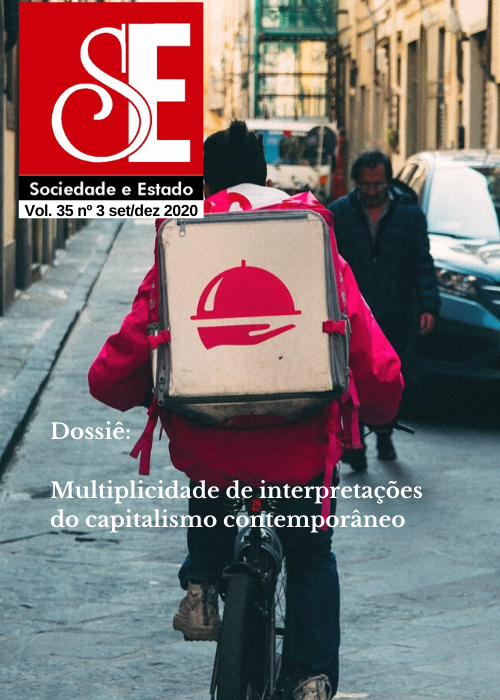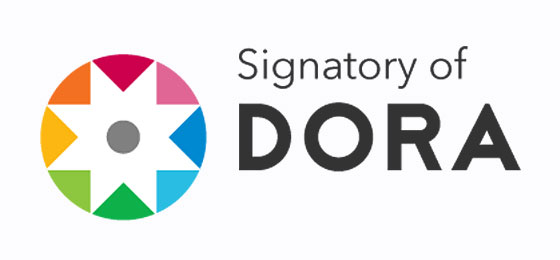El storytelling de la campaña presidencial portuguesa de 2016. Rebelo de Sousa vs. Sampaio da Nóvoa
DOI:
https://doi.org/10.1590/s0102-6992-202035030011Palabras clave:
Storytelling, narrativa, campaña política, Portugal, personajes, tramaResumen
El objetivo de este estudio ha sido analizar el storytelling de la campaña política de los dos principales candidatos a la presidencia de Portugal en las elecciones de 2016: Marcelo Rebelo de Sousa y António Sampaio da Nóvoa. La metodología empleada ha sido el análisis de contenido de los Personajes y la Trama en sus discursos de presentación de candidatura y en las noticias sobre sus campañas en los periódicos Expresso y Público. Los resultados muestran, en el análisis de prensa escrita, una relación entre el uso del personaje del villano y las encuestas de intención de voto, una mayor referencia en ambos candidatos a la situación de equilibrio final, así como que Rebelo de Sousa basó su narrativa en el héroe, mientras que en Sampaio da Nóvoa es significativa el recurso al villano.
Descargas
Citas
ALEXANDER, Jeffrey. The performance of politics. Obama’s Victory and the democratic struggle for power. New York: Oxford University Press, 2010. [ Links ]
ANDREWS, Molly. Shaping history: narratives of political change. Cambridge (UK): Cambridge University Press, 2007. [ Links ]
ANKER, Elisabeth. Villains, victims and heroes: melodrama, media, and September 11. Journal of Communication, v. 55, n. 1, p. 22-37, 2005. [ Links ]
ANSOLABEHERE, Stephen; IYENGAR, Shanto. Going negative. How political advertisements shrink & polarize the electorate. New York: The Free Press, 1995. [ Links ]
ARISTÓTELES. Poética. México (DF): Bibliotheca Scriptorvm Graecorvm et Romanorvm Mexicana, 1946. [ Links ]
BAL, Mieke. Narratology. Introduction to the theory of narrative. Toronto (CA): University of Toronto Press, 1985. [ Links ]
BARTON, Jared; CASTILLO, Marco; PETRIE, Ragan. Negative campaigning, fundraising, and voter turnout: a field experiment. Journal of Economic Behavior & Organization, v. 121, p. 99-113, 2016. [ Links ]
BERGSTRAND, Kelly; JASPER, James M. Villains, victims, and heroes in character theory and affect control theory. Social Psychology Quarterly, v. 81, n. 3, p. 228-247, 2018. [ Links ]
BJÖRNINEN, Samuli; HATAVARA, Mari; MÄKELÄ, Maria. Narrative as social action: a narratological approach to story, discourse and positioning in political storytelling. Journal of Social Research Methodology, v. 23, n. 4, p. 437-449, 2020. [ Links ]
BORBA, Felipe . Propaganda negativa nas eleições presidenciais brasileiras. Opinião Pública, v. 21, n.2, p. 268-295, 2015. [ Links ]
BOTO, Carlota. António Nóvoa: uma vida para a educação. Educação e Pesquisa, v. 44, p. 1-24, 2018. [ Links ]
CASAÑ-PITARCH, Ricardo. Mr. president, discourse matters: a contrastive analysis of Donald Trump and Barack Obama’s siscourse. RUDN Journal of Language Studies, Semiotics and Semantics, v. 9, n. 1, p. 173-185, 2018. [ Links ]
CASTROMIL, Anton R. Negativismo mediático y campaña electoral en las elecciones generales de 2008. REIS, v. 139, p. 163-174, 2012. [ Links ]
CHATMAN, Seymour. Story and discourse. Narrative structure in fiction and film. Ithaca (NY): Cornell University Press, 1978. [ Links ]
CHARTERISBLACK, Jonathan. Analysing political speeches: rhetoric, discourse and metaphor. Hampshire (UK): Palgrave Macmillan, 2014. [ Links ]
CHOU, Mark; BLEIKER, Roland; PREMARATNA, Nilanjana. Elections as theater. Washington (DC): American Political Science Association, 2016. [ Links ]
CLÉMENT, Maéva; LINDEMANN, Thomas; SANGAR, Eric. The “hero-protector narrative”: manufacturing emotional consent for the use of force. Political Psychology, v. 38, n. 6, p. 991-1008, 2016. [ Links ]
COUGHLIN, Alex T. The challenges of populism: an analysis of teaparty structuring narratives. Tesis Doctoral, Colorado State Univesrity, 2011. [ Links ]
CURINI, Luigi. The direction of Valence campaigning in two dimensions. In: ______(Org.). Corruption, ideology, and populism. London: Palgrave Macmillan, 2017. [ Links ]
DAMORE, David F. Candidate strategy and the decision to go negative. Political Research Quarterly, v. 55, n. 3, p. 669-686, 2002. [ Links ]
DEIGHTON, John, ROMER, Daniel; MCQUEEN, Josh. Using drama to persuade. Journal of Consumer Research, v. 16, n. 3, p. 335, 1989. [ Links ]
FIGUEIRAS, Rita. O efeito Marcelo: o comentário político na televisão. Lisboa: Fundação Francisco Manuel dos Santos, 2019. [ Links ]
GOMEZ-ZARA, Diego; BOON, Miriam; BIRNBAUM, Larry. Who is the hero, the vil-lain, and the victim?: detection of roles in news articles using natural language techniques. IUI '18: 23rd International Conference on Intelligent User Interfaces, p. 311-315, March 2018. [ Links ]
GRAÇA, Francisco. A política e os media: o enviesamento da imprensa portuguesa em 2009 e 2015. Dissertação de mestrado. Instituto Universitário de Lisboa (ISCTE/IUL), 2017. [ Links ]
GRAY, Garry; JONES, Michael D. A qualitative narrative policy framework? Examining the policy narratives of US campaign finance regulatory reform. Public Policy and Administration, v. 31, n. 3, p. 193-220, 2016. [ Links ]
HANSEN, Kasper M.; PEDERSEN, Rasmus T. Negative campaigning in a multiparty system. Scandinavian Political Studies, v. 31, n. 4, p. 408-427, 2008. [ Links ]
HANSKA, Jan. Reagan’s mythical America. Storytelling as political leadership. New York: Palgrave Macmillan, 2012. [ Links ]
HASSELL, Hans J. G. Desperate times call for desperate measures: electoral competitiveness, poll position, and campaign negativity. Political Behavior, p. 1-23, Aug. 2019. [ Links ]
HEISE, David R. Expressive order. Boston (MA): Springer, 2007. [ Links ]
JASPER, James M.; YOUNG, Michael P.; ZUERN, E. Public characters. The politics of reputation and blame. New York: Oxford University Press, 2020. [ Links ]
______. Character work in social movements. Theory and Society, v. 47, n. 1, p. 113-131, 2018. [ Links ]
KIRKPATRICK, Kellee J.; STOUTENBOROUGH, James W. Strategy, narratives, and reading the public: developing a micro-level theory of political strategies within the narrative policy framework. Policy Studies Journal, v. 46, n. 4, p. 949-977, 2018. [ Links ]
KLEIN, Sarah; MASON, Tom. How to win an election. The New York Times. 18 Feb. 2016. Recuperado de: <https://www.nytimes.com/2016/02/18/opinion/how-to-win-an-election.html>. Fecha de acceso: 05 Jun. 2020. [ Links ]
LAU, Richard R., SIGELMAN, Lee; ROVNER, Ivy B. The effects of negative political campaigns: a meta-analytic reassessment. Journal of Politics, v. 69, n. 4, . 1176-1209, 2007. [ Links ]
LOURENÇO, Luiz Claudio. Propaganda negativa: ataque versus votos nas eleições presidenciais de 2002. Opinião Pública, v. 15, n. 1, p. 133-158, 2009. [ Links ]
MCBATH, James H.; FISHER, Walter R. Persuasion in presidential campaign communication. Quarterly Journal of Speech, v. 55, n. 1, p. 17-25, 1969. [ Links ]
MCBETH, Mark K.; SHANAHAN, Elizabeth A. Public opinion for sale: the role of policy marketers in greater yellowstone policy conflict. Policy Sciences, v. 37, n. 3, p. 319-338, 2004. [ Links ]
MCBETH, Mark K.; SHANAHAN, Elizabeth A.; JONES, Michael D. The science of Storytelling: measuring policy beliefs in Greater Yellowstone. Society & Natural Resources, v. 18, n. 5, p. 413-442, 2005. [ Links ]
MCHALE, John P. Media coverage of corruption and scandal in the 2016 presidential election: fantasy themes of crooked Hillary and corrupt businessman Trump. In: LIND, N. S.; ROBE-HEMP, C. E. (Orgs.). Corruption, Accountability and Discretion, v. 29, p. 107-123, 2017. [ Links ]
MCMORRIS, Claire; ZANOCCO, Chad; JONES, Michael. Policy narratives and policy outcomes: an NPF examination of Oregon’s Ballot Measure 97. Policy Studies Journal, v. 46, n. 4, p. 771-797, 2018. [ Links ]
MERELMAN, Richard M. The dramaturgy of politics. The Sociological Quarterly, v. 10, n. 2, p. 216-241, 1969. [ Links ]
MIGUEL, Luis Felipe; BIROLI, Flávia; SALGADO, Susana. Meios de comunicação e política: evolução histórica e comparações entre Brasil e Portugal. In: PRIOR, H.; GUAZINA, L.; ARAUJO, B. (Orgs.). Diálogos lusófonos em comunicação e política. Lisboa: LabCom Books, 2017. [ Links ]
NAI, Alessandro; SCIARINI, Pascal. Why “going negative?” Strategic and situational determinants of personal attacks in Swiss direct democratic votes. Journal of Political Marketing, v. 17, n. 4, p. 1-31, 2015. [ Links ]
NIMMO, Dan. Elections as ritual drama. Society, v. 22, n. 4, p. 31-38, 1985. [ Links ]
OSGOOD, Charles E.; SUCI, George J.; TANNEBAUM, Percy H. The measurement of meaning. Urbana (IL): The University of Illinois Press, 1957. [ Links ]
PAGE, Janis T.; DUFFY, Margaret E. What does credibility look like? Tweets and walls in U.S. presidential candidates’ visual storytelling. Journal of Political Marketing, v. 17, n. 1, p. 3-31, 2016. [ Links ]
PAQUETE DE OLIVEIRA, José Manuel. Não há jornais de direita nem de esquerda em Portugal. Público, 06 Jun. 2016. Recuperado de: . Fecha de acceso: 11 Jun. 2020. [ Links ]
PEREIRA, Miguel M. Do parties respond strategically to opinion polls? Evidence from campaign statements. Electoral Studies, v. 59, p. 78-86, 2019. [ Links ]
______. As eleições presidenciais através das sondagens, 12 Jan. 2016. Recuperado de: <https://miguelmpereira.com/2016/01/12/as-eleicoes-presidenciais-atraves-das-sondagens/>. Fecha de acceso: 08 Jun. 2020. [ Links ]
POLKINGHORNE, Donald E. Narrative knowing and the human sciences. Albany (NY): State University of New York Press, 1988. [ Links ]
POLLETTA, Francesca. It was like a fever. Chicago (IL): University of Chicago Press, 2006. [ Links ]
SHANAHAN, Elizabeth A., MCBETH, Mark K. y HATHAWAY, Paul. L. Narrative policy framework: the influence of media policy narratives on public opinion. Politics & Policy, v. 39, n. 3, p. 373-400, 2011. [ Links ]
SIMORANGKIR, Deborah N.; PAMUNGKAS, Sigit. Strategic political communication through storytelling: A case study of the “Democreative Tales of Jokowi’s Blusukan” comics. Public Relations Journal (Special Issue), p. 1-22, 2017. [ Links ]
STONE, Deborah. Policy paradox: the art of political decision making. New York: WW. Norton, 2002. [ Links ]
SHIV, Baba; HUBER, Joel. The impact of anticipating satisfaction on consumer choice. Journal of Consumer Research, v. 27, n. 2, p. 202-216, 2000. [ Links ]
SWERTS, Thomas. Gaining a voice: storytelling and undocumented youth activism in Chicago. Mobilization: An International Quarterly, v. 20, n. 3, p. 345-360, 2015. [ Links ]
TEDDLIE, Charles; TASHAKKORI, Abbas. Foundations of mixed methods research. Los Angeles (CA): Sage, 2009. [ Links ]
TODOROV, Tzvetan. Literatura y significación. Barcelona (ES): Planeta, 1963. [ Links ]
VROMEN, Ariadne; COLEMAN, William. Online campaigning organizations and storytelling strategies: GetUp! in Australia. Policy & Internet, v. 5, n. 1, 76-100, 2013. [ Links ]
WOLF, Larissa. The use of rhetorical devices in selected speeches by Hillary Clinton and Donald Trump during the electoral campaign 2016. Disertación de Máster, Universidad de Viena, 2017. [ Links ]
Descargas
Publicado
Cómo citar
Número
Sección
Licencia
Derechos de autor 2020 Sociedade e Estado

Esta obra está bajo una licencia internacional Creative Commons Atribución-NoComercial 4.0.




.jpg)



















